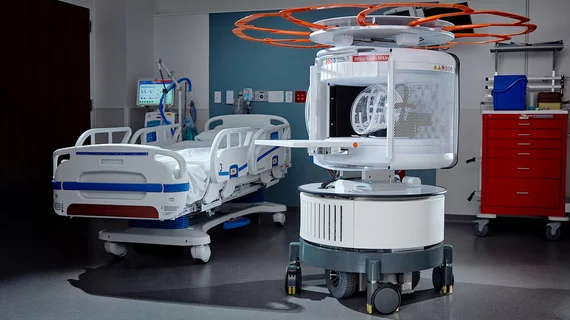Portable MRI technology improves stroke management
Portable MRI solutions can provide doctors with critical information they need to determine the proper care path for patients presenting with stroke symptoms, according to new data published in Nature Communications.
According to the study's authors, their analysis—which received funding from the American Heart Association—is the first to validate the appearance and clinical implications of a brain hemorrhage using a portable MRI device.
The researchers compared the results of portable MRI scans of 144 patients at Yale New Haven Hospital with results from traditional neuroimaging scans. The portable MRI scans were carried out using a solution manufactured by Hyperfine. Images acquired by the portable MRI solution were used to correctly identify 80% of intracerebral hemorrhages.
“There is no question this device can help save lives in resource-limited settings, such as rural hospitals or developing countries,” Kevin Sheth, MD, professor of neurology and neurosurgery at Yale School of Medicine, said in a prepared statement. “There is also now a path to see how it can help in modern settings. It is of critical importance to continue to collect more data across a range of stroke characteristics so that we can maximize the potential benefit of this approach.”
The authors concluded that the results of the study demonstrate that portable MRI is a safe and feasible imaging solution that provides valuable information when evaluating potential ICHs.
“Overall, we report a systematic assessment of ICH using a portable MRI device that can be integrated into the clinical workflow to provide timely diagnostic neuroimaging at the bedside," they wrote. "Further study is required in prospective multicenter studies."
The team is currently investigating the potential use of portable MRI technologies in helping diagnose and monitor more clinical areas, including head trauma and brain tumors.
Read the entire study here.
